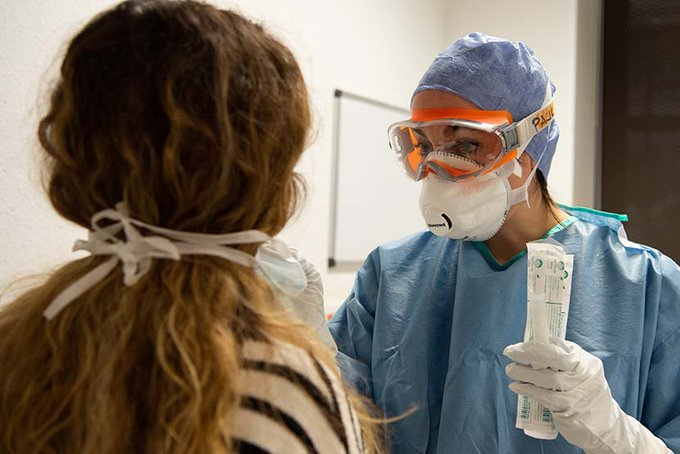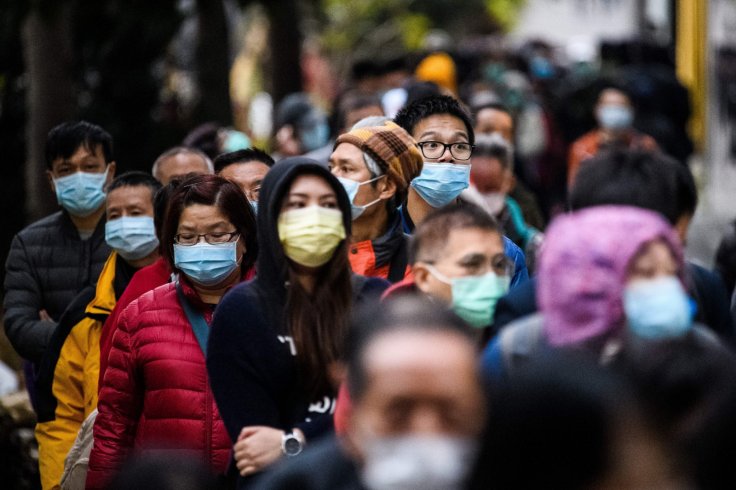Countries all around the world have decided to change the strategy to combat Coronavirus' second wave as they are now focusing on mass testing program and announcing strict quarantine rules on foreign travellers.
Singapore, China and Denmark have already decided to announce the expansions of their testing regime, with China's Wuhan city, the initial epicentre of the COVID-19 outbreak, planning to conduct Coronavirus tests on the entire city population of 11 million after new cases emerged for the first time in weeks.
The officials were ordered to submit urgent plans to test all Wuhan's residents after authorities noted six new cases in a residential compound, the first cluster of new Coronavirus infections since the city reopened on April 8 after 76 days of lockdown.
However, after two consecutive days of double-digit increases in COVID-19 cases that fuelled fears of a second wave, on Tuesday, May 12, China reported no new domestic infection cases. But, the north-eastern city of Shulan has been placed under lockdown since Sunday, May 10 after an outbreak emerged in the border area.

Singapore, UK, Denmark and other countries to adopt new strategies
The Southeast Asian country, Singapore, which has recorded 24,671 cases and 21 Coronavirus deaths as of now, said that it would test 323,000 migrant workers living in cramped and unsanitary dormitories that have turned into a hotbed of infections in recent weeks.
Singapore's health minister, Gan Kim Yong said, "The task force has drawn up a plan to allow migrant workers residing in the dormitories ... to be progressively cleared so they can be safely returned to work when the time comes."
The city-state re-opened some businesses such as hairdressers, laundry services and pet suppliers, while most workplaces and schools remain closed and dining at restaurants is banned under strict measures introduced in Singapore.
Germany reports 50 new cases
In Germany, four municipalities are trying to contain new outbreaks of more than 50 new infections for every 100,000 residents within seven days. Recent reports said abattoirs and food-processing plants in Lower Saxony, Schleswig Holstein, North-Rhine Westphalia and Baden-Württemberg have been identified as the centres of the outbreaks. Germany's disease control agency, the Robert Koch Institute said they could be responsible for the recent increase in country's R-number to above 1.
As per the health authorities, it is possible that the Coronavirus may not have spread in the processing plants themselves, but it may have found fertile ground in the overcrowded housing units shared by mostly East European contract workers. On Tuesday, Germany has announced that its weekly test capacity is now at 838,000.

Denmark, the country to start easing its lockdown, said that the new COVID-19 cases had fallen steadily despite primary schools and some businesses reopening last month and R-number, which indicates how many people each carrier of the virus infects, has dropped from 0.9 to 0.7.
However, it should be noted that as per the prime minister Mette Frederiksen, "significant increase" in testing for phase 2, which began on Monday, May 11 has been noted. She said, "If it takes off again we need to know fast, trace effectively, and isolate the sick so we can break the infection chains without having to close down society again."
Meanwhile, France, UK have started preparation to announce quarantines while Spain said on Tuesday that from May 15 all new arrivals would be isolated for two weeks to help prevent imported infections and these new arrivals are allowed only to buy food or medicine, seek medical attention, or on emergency grounds.
However, as per The Guardian, Kare Molbak an epidemiologist said that no country had yet seen "an actual second wave", and added that "the knowledge that we have today, I find it very unlikely that we'll see a second wave".
France, Italy and Russia battle Coronavirus
Parisians living in France have been banned from drinking alcohol on the banks of the canal Saint-Martin and river Seine after local police were forced to disperse crowds on Monday, just hours after the end of the eight-week lockdown. The government also decided to keep the parks and squares shut.
In Italy, bars, restaurants, hairdressers and beauty parlours reopened after pressure from regional leaders but all these places are asked to implement distancing and hygiene measures, while restaurants ordered to keep 4 metres between diners.
As per a leaked version of a document, the European Commission is set to recommend a three-phase approach to reopening borders but it is unclear whether EU will back "tourism corridors" or bilateral deals to open to each other's tourists.
In Russia, which has turned into world's second-highest infected countries with over 230,000 infections, Dmitry Peskov, the spokesman for the Russian president, Vladimir Putin, has confirmed that he had been infected with SARS-CoV-2 and was being treated in hospital.
Meanwhile, containment measures in parts of the country were lifted but remained in force in the Russian capital, Moscow. As per the reports around 500,000 workers went back to their jobs on Tuesday.










